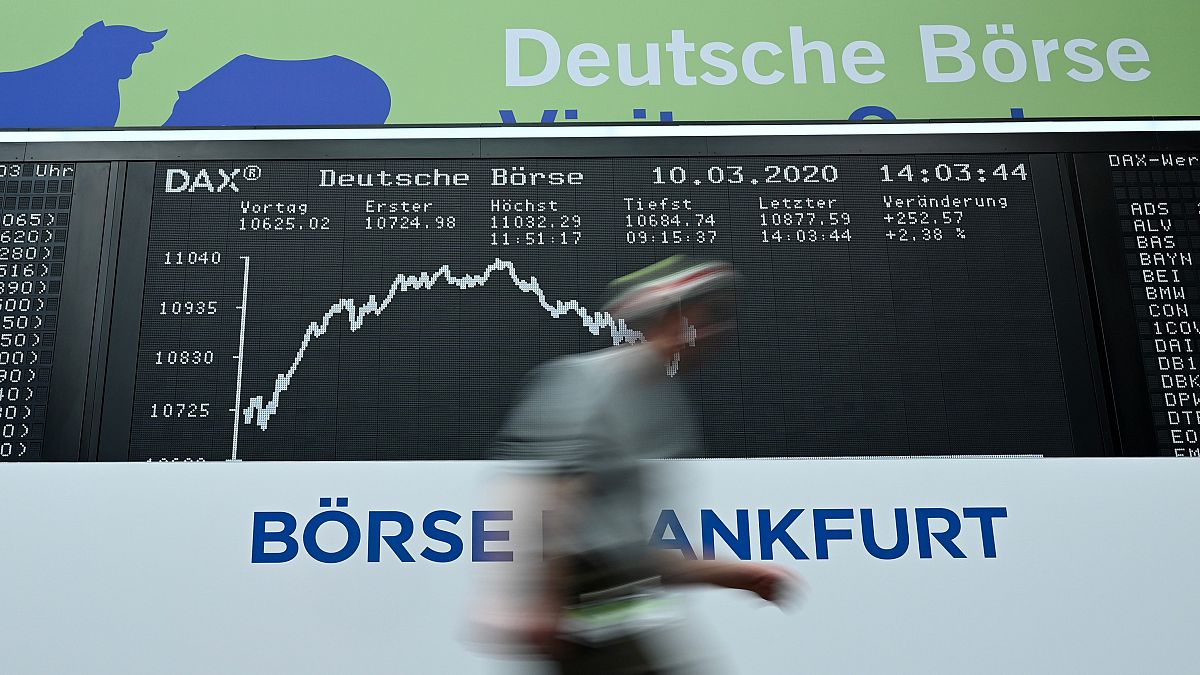Finance
New regulator pledges transparency as China works to prevent investor exodus

China’s new financial regulator has made fresh pledges to increase regulatory transparency, stability and predictability, the latest of several attempts to restore investor confidence following a stock meltdown and high-profile personnel changes.
“[We’ll] strengthen the interconnection of domestic and overseas financial markets and better facilitate cross-border investment and financing,” the commission said in its article, which detailed how to make China a “financial superpower”.
These signals are being sent at a time when foreign investors, including greenfield capital and portfolio holders, are hesitant to decide their next move and worried over the future of China’s policy choices.
The world’s second-biggest economy achieved 5.2 per cent gross domestic product growth in 2023, but market sentiment has remained low thanks to a protracted property industry slump, beleaguered employment figures and ballooning debts held by local governments.
Foreign investors have turned to other markets in the past year amid these factors and heightened geopolitical tensions, pushing the country’s annual net receipt of foreign direct investment (FDI) to a 30-year low in 2023.
‘We play with our money, so are careful’: is China uninvestable or invaluable?
‘We play with our money, so are careful’: is China uninvestable or invaluable?
According to data released by the State Administration of Foreign Exchange on Sunday, direct investment liabilities – a measure of both FDI inflows and outflows – rose by US$33 billion last year over 2022. This was a drop of 82 per cent year on year, and the lowest annual level for the investment metric since 1993.
However, Wang Chunying, a spokesperson for the forex regulator, said the foreign inflow of securities investment in China improved in the fourth quarter of 2023, with net inflow reaching a two-year high.
“This shows more foreign capital comes to China to invest in business and allocate renminbi assets”, she said in a statement, adding that China’s balance of payments will stabilise in 2024 as “both the internal and external environments will generally improve”.
The gauge rose more than 1 per cent on Monday and 0.2 per cent on Tuesday, following a long Lunar New Year holiday that saw stronger-than-expected consumer spending led by tourism and cinema sales.
China’s middle class seek safe haven for wealth amid economic slowdown
China’s middle class seek safe haven for wealth amid economic slowdown
While committing to more openness and transparency, the CFC vowed to make Shanghai more competitive and influential as an international financial centre and consolidate the status of Hong Kong.
It also emphasised the importance of “high-level security”, pledging to keep all financial activities under control.
Officials should “identify, warn against, expose and handle risks as early as possible, and prevent small things from becoming magnified and big things from blowing up”, said the commission in the article.
Beijing sees managing financial risks as critical for China’s future development, as stability is being tested by government debt loads, widespread corruption and financial services that are lagging behind the country’s rapid advances in technology and manufacturing.

Finance
FIS Launches Embedded Finance Platform for Financial Institutions and Businesses

FIS has launched an embedded finance platform designed for use by financial institutions, businesses and software developers.
The new “Atelio by FIS” platform can help any company collect deposits, move money, issue cards, send invoices, fight fraud, forecast cash flows and better understand customer behavior, the company said in a Tuesday (May 7) press release.
“Our scale, distribution and continued investment in technology have given us the foundation to unlock our financial capabilities to a wider audience and power the next generation of financial innovation,” Tarun Bhatnagar, president of platform and enterprise products at FIS, said in the release.
Atelio delivers existing FIS financial technology via components that are easy to embed in a secure and compliant manner, according to the release.
The platform builds on the company’s history of service to the financial services industry, its technology and its expertise in risk and compliance, offering these resources as a service, the release said.
With these capabilities, financial institutions, businesses and software developers can deliver financial offerings to their customers at the point where they are needed, per the release.
One company that is already building on Atelio is College Ave, which used the platform to launch a new financial product for college students, according to the release.
“We wanted a product that could bring together an account, credit card and payments into a single experience, and Atelio allowed us to offer a custom solution through our platform in a simple and secure process, which has been hugely beneficial to us in meeting our customers’ needs,” Karen Boltz, head of product management at College Ave, said in the release.
PYMNTS Intelligence has found that embedded finance creates better experiences for consumers by making their interactions with brands seamless, convenient and personalized.
This is important because 49% of consumers said they would probably quit an online purchase if they encountered difficulty checking out and a lack of payment choice, according to “How Nonfinancial Brands Can Benefit from Offering Embedded Financial Services,” a PYMNTS Intelligence and Galileo collaboration.
The report also found that 88% of companies that offer embedded finance said it increased customer engagement.
Finance
Taiwan finance group SinoPac enters race in Cambodian banking

TAIPEI — The Taiwanese financial conglomerate SinoPac Holdings is entering the Cambodian banking industry by acquiring a local institution that is majority-held by Western investors, the latest example of the diversification of Taiwanese investment into Southeast Asia.
SinoPac announced over the weekend that its subsidiary Bank SinoPac will acquire 100% of Amret, Cambodia’s largest microfinance deposit-taking institution by total assets, from existing shareholders.
Finance
Do finance transparency laws have a chance in Michigan?

Should lawmakers have to reveal their donors and the amount of money send to them? Republican state Sen. Ed McBroom, (R-Vulcan), certainly thinks so. Dark money accounts shield the finances that lawmakers benefit from, which can also mask any problematic influences behind their campaigns.
-

 News1 week ago
News1 week agoBoth sides prepare as Florida's six-week abortion ban is set to take effect Wednesday
-

 Politics1 week ago
Politics1 week agoGOP Rep. Bill Posey won't seek re-election, endorses former Florida Senate President as replacement
-

 World1 week ago
World1 week agoRussian forces gained partial control of Donetsk's Ocheretyne town
-

 World1 week ago
World1 week agoZelenskyy warns of Russian nuclear risks on Chernobyl anniversary
-

 Politics1 week ago
Politics1 week agoHouse Republicans brace for spring legislative sprint with one less GOP vote
-
Movie Reviews1 week ago
Challengers Movie Review
-

 World1 week ago
World1 week agoAt least four dead in US after dozens of tornadoes rip through Oklahoma
-

 Politics1 week ago
Politics1 week agoAnti-Trump DA's no-show at debate leaves challenger facing off against empty podium





















